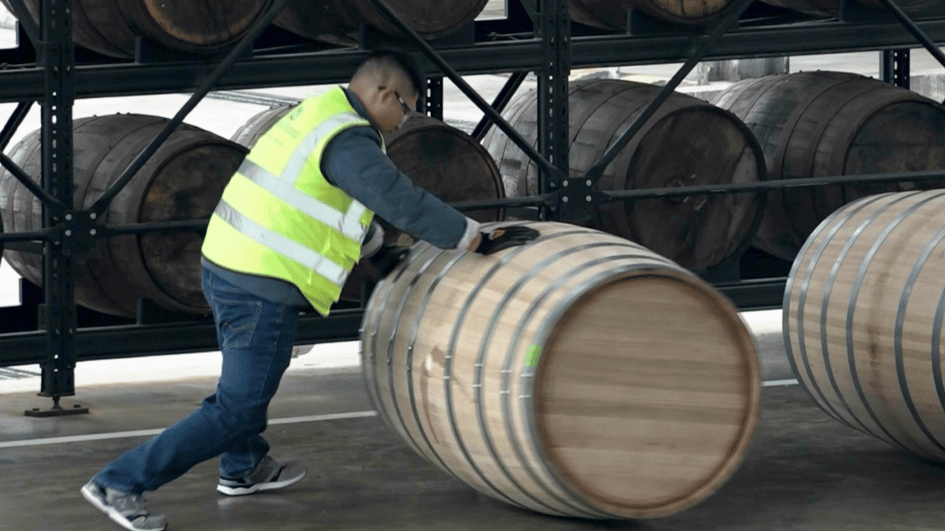
A distillery in southwestern China is aiming to tap a growing taste among young Chinese for whisky in place of the traditional “baijiu” liquor used to toast festive occasions.
The more than $100 million distillery owned by Pernod Ricard at the UNESCO World Heritage site Mount Emei launched a pure-malt whisky, The Chuan, earlier this month.
The French wine and spirits group says it is produced using traditional whisky-making techniques combined with Chinese characteristics including locally grown barley and barrels made with oak from the Changbai mountains in northeastern China.
“Chinese terroir means an exceptional and unique environment for aging, including the water source here — top-notch mineral water. The source of water at Mount Emei is very famous," says Yang Tao, master distiller at the distillery.
A centuries-old drink, whisky is relatively new to China, but there are already more than 30 whisky distilleries in the mainland.
Whisky consumption in China, as measured by volume, rose at a 10 percent compound annual growth rate from 2017 to 2022, according to IWSR, a beverage market analysis firm. Sales volume is forecast to continue to grow at double digit rates through 2028, according to Harry Han, an analyst with market research provider Euromonitor International.
“We see huge potential for whisky here in China. It is a product which is developing very nicely, very strongly," said Alexandre Ricard, chairman and CEO of Pernod Ricard. “We do believe that the Chinese have developed a real taste, particularly for malt whisky.”
Raymond Lee, founder of the Single Malt Club China, a whisky trading and distribution company in Beijing, said whisky has become more popular as the economy has grown.
“As the economy develops and personal income increases, many people are pursuing individuality. In the past we all lived the same lives. When your economic conditions reach a certain level, you will start to seek your own individuality. Whisky caters just to the consumption mindset of these people. And its quality is very different from that of other alcoholic drinks,” he says.
More than half of China’s whisky consumers are between 18 and 29 years old, according to an analysis based on data from the e-commerce channel of Billion Bottle, which has more than 2 million registered users.
“Now the country is more and more open, and there are increasing opportunities to go abroad, and they have absorbed different kinds of cultures. They also have the courage to try new things. When they try something new — for example whisky — they realize that it’s very different from China’s baijiu. Whisky may be easier for them to accept,” Lee said.